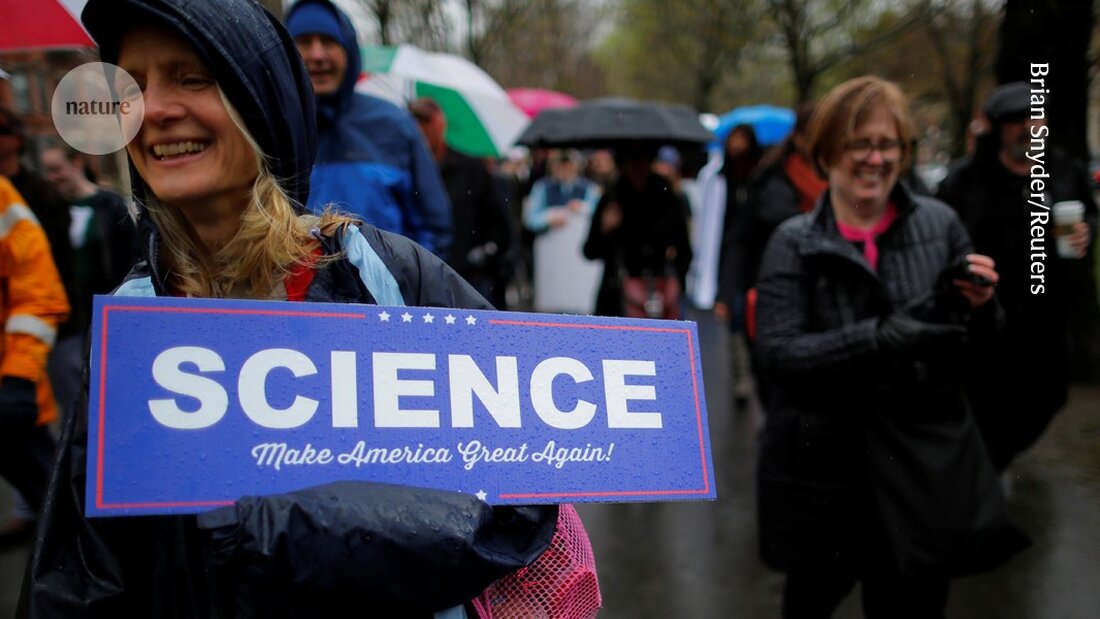Trust in scientists is finally starting to rise in the US – but only slightly
Trust in scientists in the US is showing early signs of recovery, according to a Pew survey ahead of the 2024 presidential election.

Trust in scientists is finally starting to rise in the US – but only slightly
For the first time since Start of the COVID-19 pandemic Trust in scientists in the United States has increased — albeit slightly, it shows a survey conducted two weeks before the US presidential election.
The survey, released today by the Pew Research Center in Washington DC, found that the proportion of respondents who believe scientists act in the best interests of the public rose to 76% from 73% a year ago (see 'Modest rise in trust'). However, this puts trust below the 87% who had trust in scientists in April 2020, shortly after the lockdowns began. Alec Tyson, the report's lead author and deputy director of research at the Pew Center, says, "This marks a new shift from the declines in trust in science that we have seen during the pandemic."
The results fit with other data that is good news for researchers. A survey of more than 70,000 people in 67 countries in 2022 and 2023 found overall high levels of trust in scientists, according to a preprint published on the OSF server in January 1.
“There is no data to support the argument for a general crisis of trust in science,” says Naomi Oreskes, a science historian at Harvard University in Cambridge, Massachusetts, and co-author of the preprint. She adds that Pew's findings are "very reassuring to the scientific community."
Some scientists fear that the Nov. 5 reelection of Donald Trump — who denies climate change and has denigrated federal scientists — could undermine public trust in science and potentially signal a rift between scientists and some parts of the U.S. public.
Researchers don't yet know how political changes influence public opinion toward scientists, says Niels Mede, a science communication researcher at the University of Zurich in Switzerland and co-author of the preprint. But the timing of the Pew survey means it can be used as a benchmark for tracking attitudes toward science during Trump's second term, he adds.
Partisan division
Tyson and his colleagues surveyed 9,593 U.S. residents using online and telephone surveys from October 21 to 27. Participants were asked to indicate the extent to which they agreed with statements about scientists' intelligence, communication skills, compassion for the public, and engagement in politics.
Nearly 90% of survey respondents who identified as Democrats said they believe scientists act in the best interest of the public. The figure for Republicans was 66% — 5 percentage points higher than last year. However, respondents were sharply divided on whether scientists should participate in political debates about scientific issues, with 51% supporting an active role and 48% saying scientists should stay out of these debates.
This means that "people want to trust science, but they're not always sure they can trust scientists" to put personal bias aside when they exert their influence, says Arthur Lupia, a survey researcher at the University of Michigan in Ann Arbor.
The Pew report also found that only 45% of respondents believe scientists are good communicators and 47% think scientists feel superior to others. Researchers who spoke to Nature say the scientific community should accept and act on this feedback.
“It's one thing to discover something — it's another thing to explain it effectively,” says Lupia. “For science to have public value, we actually need to do both.”
To solve the communication dilemma, Oreskes says science programs should incorporate more public-oriented writing and speaking into their curricula. Mede suggests that scientists participate in science fairs in children's schools, participate in community projects and find other ways to communicate with people face-to-face.
“There is an important opportunity here for scientists, particularly those in government agencies,” says Oreskes, “to undertake an honest review of the ways in which their communication strategies have failed during the pandemic and consider how they can do better in the future.”
-
Cologna, V. et al. Preprint at OSF Preprints https://doi.org/10.31219/osf.io/6ay7s (2024).

 Suche
Suche
 Mein Konto
Mein Konto
